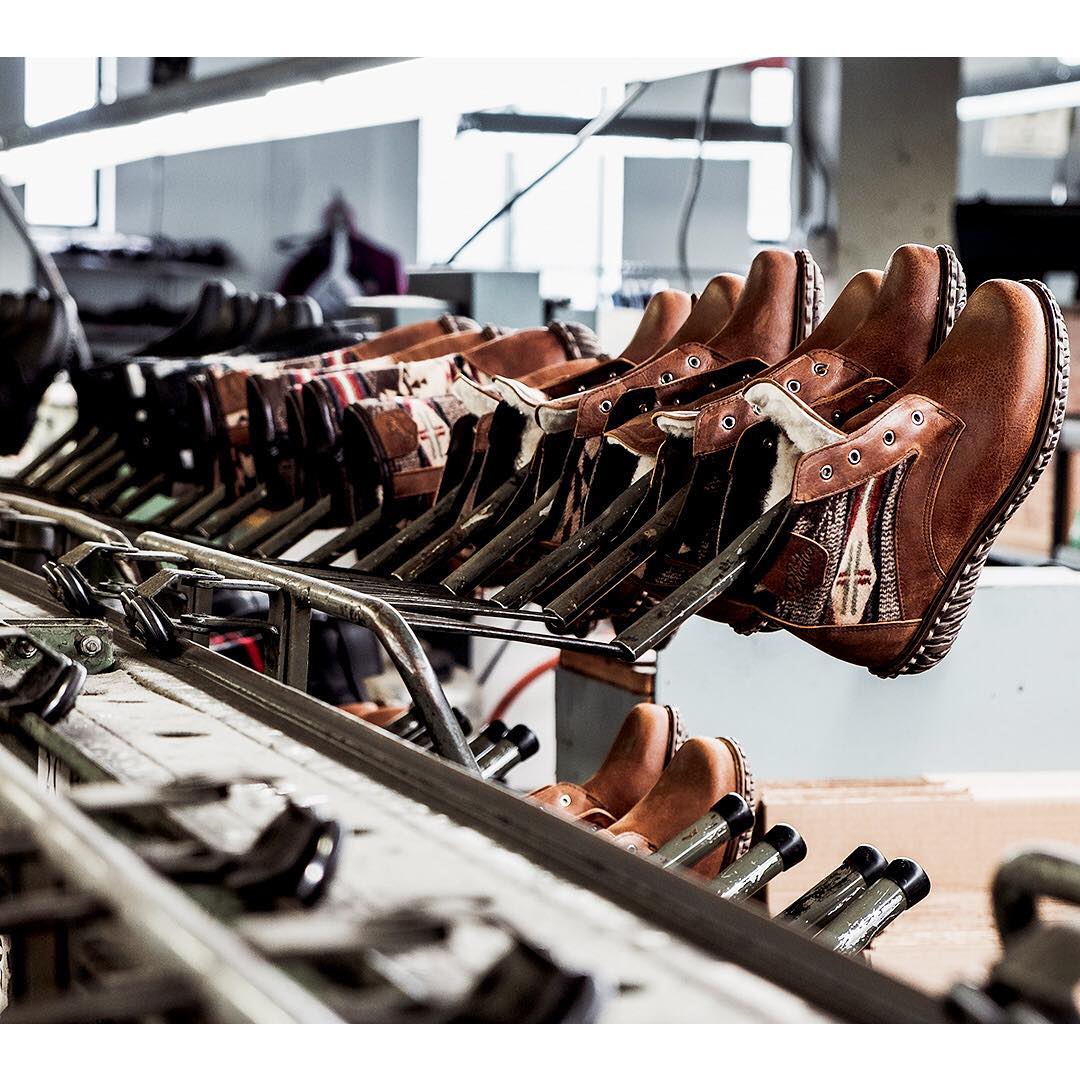The 1980s saw the birth of globalization, which expanded trade areas and led to the relocation of the production of consumer goods from industrialized countries to emerging countries (Roy and Munger, 2016: 196). While the latter dominate the scene of international trade in terms of exports and the production of consumer goods, some entrepreneurs dare to take up the challenge of local production, which has its share of difficulties, but also many advantages. To help us understand these benefits, Anfibio Boots Inc. and Woodstock and Co. agreed to answer our questions.
Portrait of the world situation

credit: Pixabay
Globalization has been a phenomenon present in economics for several centuries. It is inherent in the concept of international trade, but it has taken on gigantic proportions in recent decades, becoming literally omnipresent in the economic landscape. This increase is due to the achievement of its third phase, called globalization. During this phase, we witness a kind of abolition of the territorial borders of commerce and industry. Indeed, globalization is defined as “the development of resource management on a planetary scale by economic actors, with the establishment of institutions to oversee them” (Roy and Munger, 2016: 196). All of this results in the relocation of production to regions where production costs are lower. It is thanks to this process that many countries emerge on the scene of international trade. While the international commercial scene is portrayed as hyper-competitive and decentralized, why would companies want to locate all of their production locally? How do they cope with this commercial pressure? What difficulties do they encounter and what are their solutions to these problems? From these questions I came up with the idea of drawing a portrait of the path traveled by these small businesses to achieve their ambitions.
Business motivations
Launching a business project in the Belle Province requires not only a lot of audacity, but also several sources of inspiration. Although these vary from one entrepreneur to another, there are still some constants, for example the desire to participate in a social movement greater than oneself. Each entrepreneur choosing to produce in Quebec is driven by a desire to contribute to the local economy, either by creating jobs or by encouraging the consumption of local products. Proud of Quebec know-how, he seeks the durability and quality of products, thus demonstrating that the price of “Made in Quebec” is justified.
It is also to respond to personal motivations that entrepreneurs choose to embark on the adventure. Instead of choosing the easy path, they prefer the more moral one. On this subject, Catherine Tapin and Philippe Lefebvre of Woodstock & Cie state “In all respects, local manufacturing and distribution were the only possibilities that we considered. Not that it was the only possible options, because we will say it, to produce in China, from an economic point of view, has its share of advantages. However, motivations such as safeguarding the environment and ethical considerations weigh a hundred times heavier for us. Purchasing local, echoing these motivations, makes it possible to energize the local economy and makes Quebec an increasingly fertile ground for local ideas and businesses.

Credit: Woodstock & Co.
Advantages of local production
Although a production abroad seems cheaper for companies, there are still a variety of advantages to manufacturing here. First of all, the short distance between the place of production and the company's headquarters facilitates management. This proximity makes it possible to make products more accessible, but also, for companies, to better control the production schedule. Asked about this aspect, Peter Cappello of Anfibio Boots inc. explains: “Making products that are trendy with a short lead time is an advantage, because outside there would be a six-month lead time. We can offer our retailers a longer delivery time

credit: Anfibio Boots Inc.
Who says proximity also says less transport, especially in container ships, which are particularly polluting. Finally, the people employed in the manufacture of the products are protected by laws and have guarantees guaranteeing them a minimum wage and safe working conditions.
Impacts of globalization
The weight of globalization can be heavy for local businesses. First of all, globalization has changed the lifestyles of the average individual, more specifically with regard to their consumption habits. With the appearance of overconsumption, individuals want to possess a maximum quantity of goods for minimal, even derisory, costs. This new conception of purchasing harms companies that favor quality goods at a fair price. They must therefore undertake educational work for the population and promote the benefits of buying local. Catherine Tapin and Philippe Lefebvre of Woodstock & Cie illustrate this problem well with the following words: “We believe that, in life, everything has a price and it is our eternal fight. Every time we pay less for something, someone or something somewhere pays the price for us. It can be another person, our oceans, our forests, children, other businesses, etc. There is nothing free. »

Photo credit: Pixabay
Globalization greatly increases competition in the marketplace. Local businesses must not only compete against each other, but also against the whole world. In some cases, Quebec companies are reserved less space on the shelves because of the higher price of their merchandise. This imbalance between supply and demand forces Quebec creators to adopt new strategies to promote their products. For some, like Peter Cappello of Boots Anfibio Inc., this translates into specialization, that is to say a reduction in the number of models: "The difficulty of competing with foreign brands, the increased competition and the reduction from space
Challenges of a Quebec production
In addition to globalization, Quebec realities are also a source of pitfalls for local entrepreneurs. Not only must they apply impeccable internal management, but they must also be prepared to carry out training. In fact, given the labor crisis that the province is currently going through, businesses here are able to meet their employee needs only by training them themselves.

Credit: Pixabay
Fighting against globalization and local pitfalls
Over time, local businesses have taken many steps to overcome barriers. One of the crucial elements is the business model. The latter must be developed in an exhaustive manner, taking into account, as far as possible, all the constraints and realities of the market. Woodstock & Cie has just created one tailor-made for their company: "In addition, as consumers are not ready to ruin themselves to buy high-quality furniture made locally, we had to think of our business model in such a way as to reduce the gap between the cost of manufacturing the product and the price paid by the customer
This is accompanied by a strong brand image that attracts customers. Evocative, it must hook the future client and make him want to know more. Companies must not back down in the face of adversity, but rather dare to stand out. They must bet on quality and durable products; this is what makes the strength of Quebec creations. According to Catherine Tapin and Philippe Lefebvre of Woodstock & Cie, local businesses must stand out among the range of products available: "You have to succeed in creating a brand with a strong identity in order to be able to successfully inspire people to change the way they consume . You have to get to touch their heart before you touch

Credit: Woodstock & Co.
However, these measures are not always enough to allow Quebec creators to showcase their know-how and develop the full potential of their business. To remedy this, it is necessary that support be in place to support businesses here: "We need
Conclusion
It is with determination and audacity that Quebec companies set up and produce here. It is also with courage that they take up the challenges posed by centralized production on a daily basis, always seeking to give the best of themselves while promoting the values of ethics, responsible consumption and respect for the environment. . Without falling into chauvinism, it is our duty as citizens to encourage our local businesses, to put them under our aegis to ensure their success and prosperity. Supporting local businesses means ensuring that you have products that respect the environment and people, but it also means condemning dubious environmental practices, refusing to support a mode of production that uses exploitation and position themselves against a capitalist system that has become inhuman.

Reviewed By Melanie
Bibliography
GUAY, Jean-Herman. “Exports of goods and services (current US$) 2017”, World Perspective. Educational tool of major global trends since 1945,
JAFFRELOT, Christophe and Jérôme SGARD. “BRICS (Brazil, Russia, India, China, South Africa), ex-BRIC”, Universalis ,
PELLETIER, P. “Asia (human and regional geography): Spaces and societies”, Universalis ,
ROY, Dominic and Raymond MUNGER. Global Economics: The Fundamentals , 4th Edition, Montreal, Quebec: Groupe Modulo Inc.





Leave a comment
This site is protected by hCaptcha and the hCaptcha Privacy Policy and Terms of Service apply.